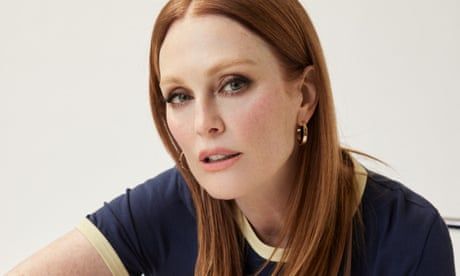
Few actors are as endlessly versatile and compelling as Julianne Moore. Ahead of her extraordinary performance in the latest Pedro Almodóvar film, she opens up about love, death and the complexity and richness of ordinary lives
Yesterday Julianne Moore was on the subway in New York, listening discreetly to strangers. “I was sitting there and I heard one woman say, ‘Well, I know that’s exactly what you’d do, I know that’s what you’re like.’ And the other woman said, ‘It’s true, I just don’t like confrontation, I don’t!’” Perhaps it’s distracting, the idea that Moore, not only an Oscar-winning actor, but one whose airy beauty and long red hair (red hair that an early director warned would limit her career, ha) makes her one of the most recognisable people in the world, could pass unnoticed through a carriage of chattering commuters. But please remember – or trust me – that part of Moore’s talent is the ability to transform, to step back from herself. She is a 63-year-old character actor in the body of a movie star. Anyway: “It was so amazing, because it was these two female friends,” Moore goes on, “and one was saying, ‘I know you, I see you’. And the other was affirming that she saw the right thing. It was fascinating. I thought, nobody’s gonna make a movie about these two, but that’s who most of us are. Right?”
In her 40-year career, which has spanned auteur’s art films like the exquisite Safe, to huge blockbusters like The Hunger Games, as well as award-winning dramas like Still Alice (for which, after many nominations, she won her Oscar in 2014) and recent TV work like the audacious Mary & George, Moore has played characters who are defiant and struggling, sometimes deviant, trapped in an often-gorgeous prison of domestic horror.
Continue reading...